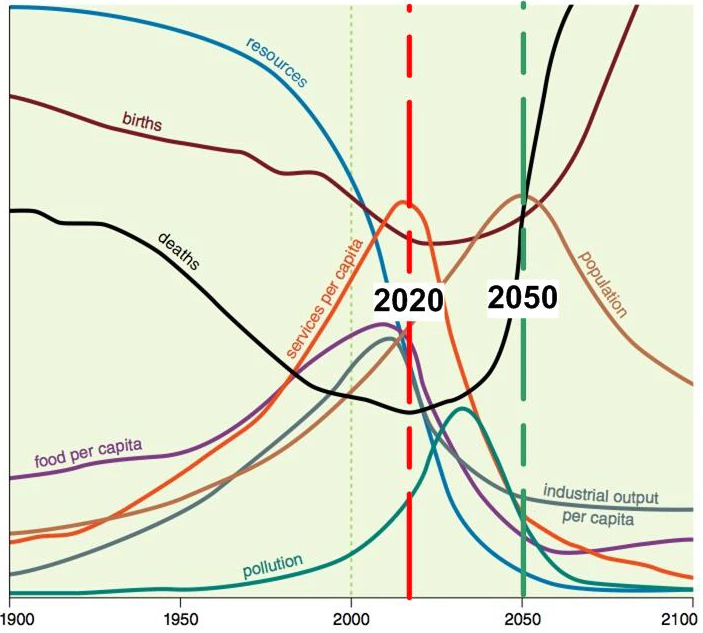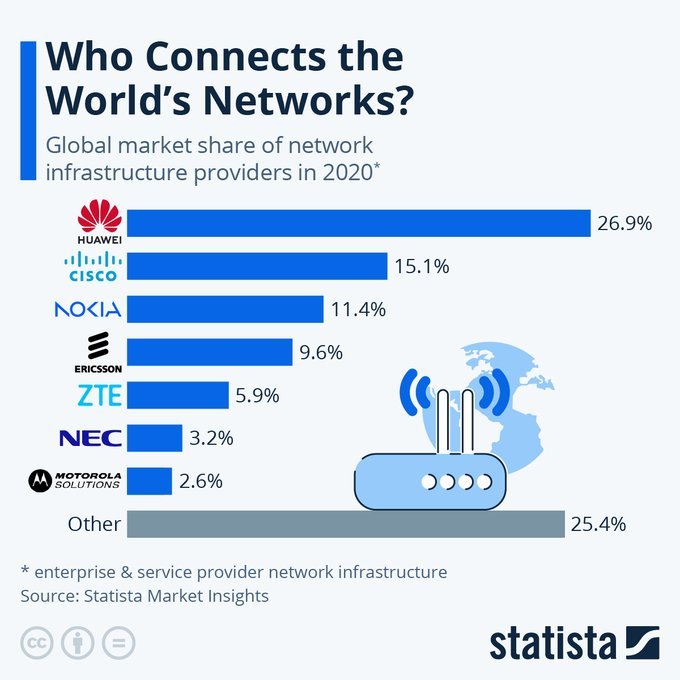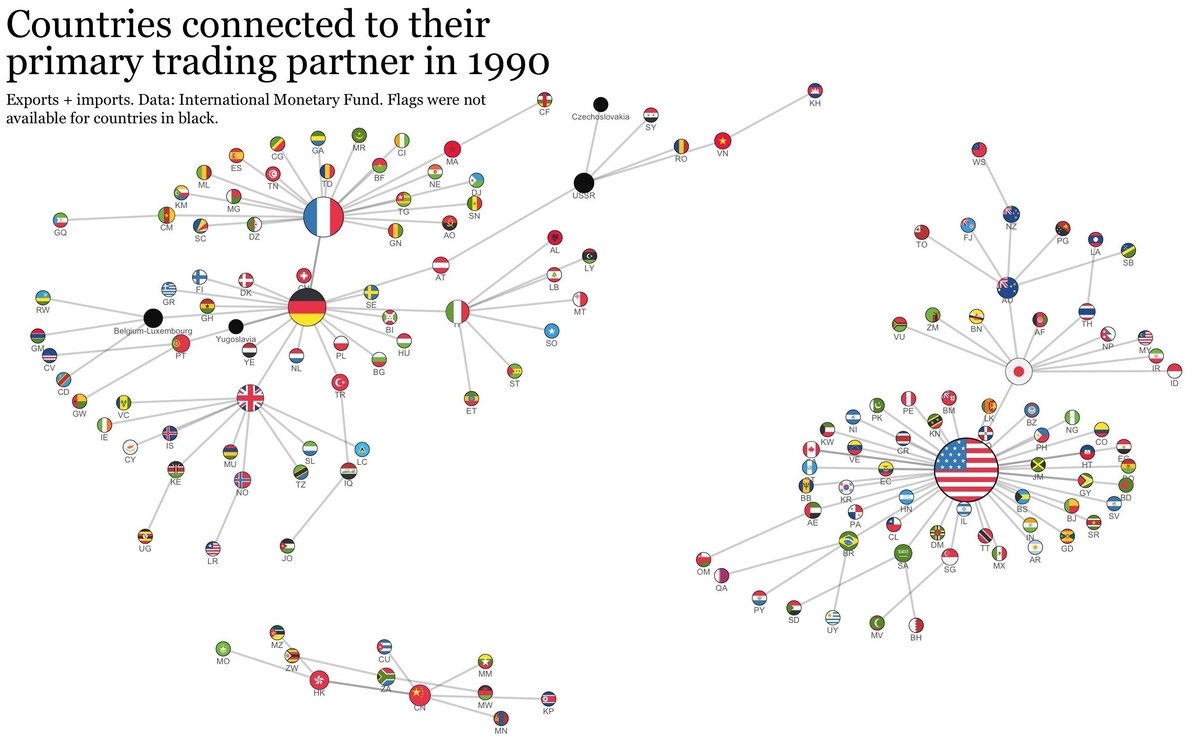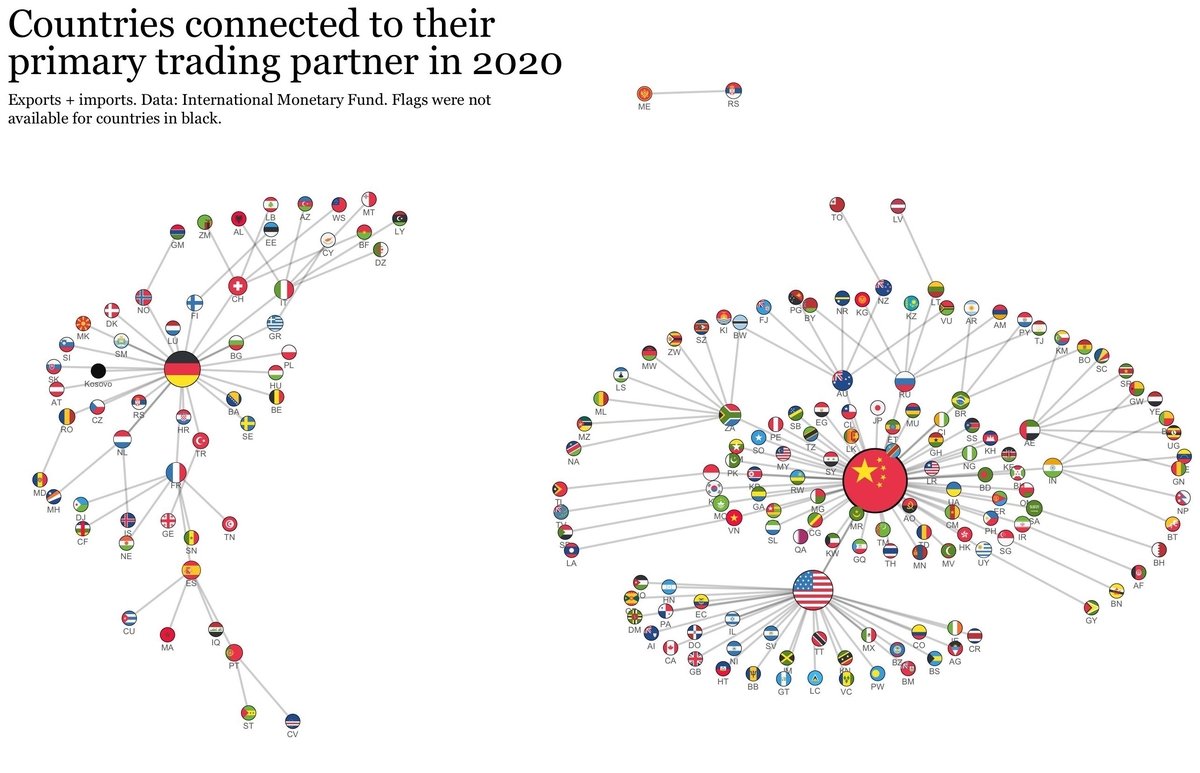We all know that civilization is in collapse due to climate change, environmental degradation and over-use of resources. The classic graph is this one.

Not pretty, and this blog tends to write about such topics a lot.
But it’s not all bad. Let’s run thru that.
Collapse will be unevenly distributed, and that means some places and positions in society will be a lot better for a long time. The trick is figuring out where those will be. Obviously not lowlands, or places which are likely to run out of water, or places where heat will move over the wet-bulb point. I’d suggest water and stability and food are the main things to look for: so, for example, in North America around the great lakes, up by Great Bear Lake (not a nice place to live right now, though) and so on.
Some people always do well. Even in the Roman collapse, there were people living good lives. Of course, those were mostly the “masters of violence” but if you have key skills people need, including technological skills or if you’re liked by many people, that will help.
Note that in the Dark Ages the other group who did relatively well were the priests and monks. Expect a religious revival and an upsurge in real “intentional” communities: monasteries, nunneries and the like. If you’re a priest, you’ll benefit, if you’re a senior monk or nun you’ll do fine.
So, a relatively senior person in charge of violence or community, or someone with useful skills, or someone who liked by a lot of people.
Work will be hard, but meaningful. Right now we have, in David Graeber’s phasing, a lot of “bullshit jobs.” Those will mostly go away. Your work may suck, but you’ll know that it’s actually needed.
A restoration of the extended family. Leaving aside refugees, but even there only partially, the family household will be a thing again, as it is one of the most effective ways to deal with bad times, and as people won’t be leaving to find work that doesn’t exist. This is a good/bad thing, the extended family, generally patriarchal, has a lot of downsides, but people in religious communities and extended families are happier and healthier in general and have a buffer against bad times. This is pretty robust in the literature.
More local autonomy. International trade and expeditions half way around the world to beat up other people up will decrease significantly, we won’t have the resources for them. Because of this local agriculture and production will come back, and with that will come an end to a universal “Americanized/European/Han” culture. Areas will be able to make their own choices, for good or bad, and will not be overwhelmed by power and economy of scale from far away.
The consumer lifestyle will end but appropriate tech will take its place. We do know a lot more than when the Romans went into the Dark Ages, and there are lot of solutions for our problems. Green houses with shutters, non-panel solar power. Water resevoirs attached to homes, and far more. You’ll live local, you’ll be more independent as a household (if you belong to one), and you’ll spend a lot less time working for other people and much more working for yourself and your family. Again, this is a mixed bag, but there are upsides.
The Possibility of the New. What happens will break all existing ruling ideologies: capitalism, representative democracy, the CCP (China will break up at some point, my guess centers around the 70s) and so on. If your ideology was in charge, it’s going to take a huge hit. Of course much of what will happen is a reversion to household patriarchy and religion, but there is the real possibility of new forms of organization, ideology and politics.
This is why it is important, now, to win the storytelling wars. Why this world collapsed and what a good world should look like. When everything goes to Hell people will use the ideas on the ground. If they’re good ones, great. If not, Hell. In a lesser way look at the Great Depression: Germany gets Hitler, the US lucks out and gets FDR. But the times coming will be much worse than the Great Depression and the possibility of change likewise greater.
The end of something old is always the chance to create something new and that new thing may be better. In fact, I’m sure it will be, in some places, just as in many places it will be something much worse.
Hope isn’t optimism. It’s a realistic way of saying “there are possibilities and we can reach for the better ones.”
Let it be so.
(We’ll talk more specifics in future articles. There’s a category “The Green Age After the Collapse.” It will see more use.
Donors and subscribers make it possible for me to write, so if you value my writing, please DONATE or SUBSCRIBE



